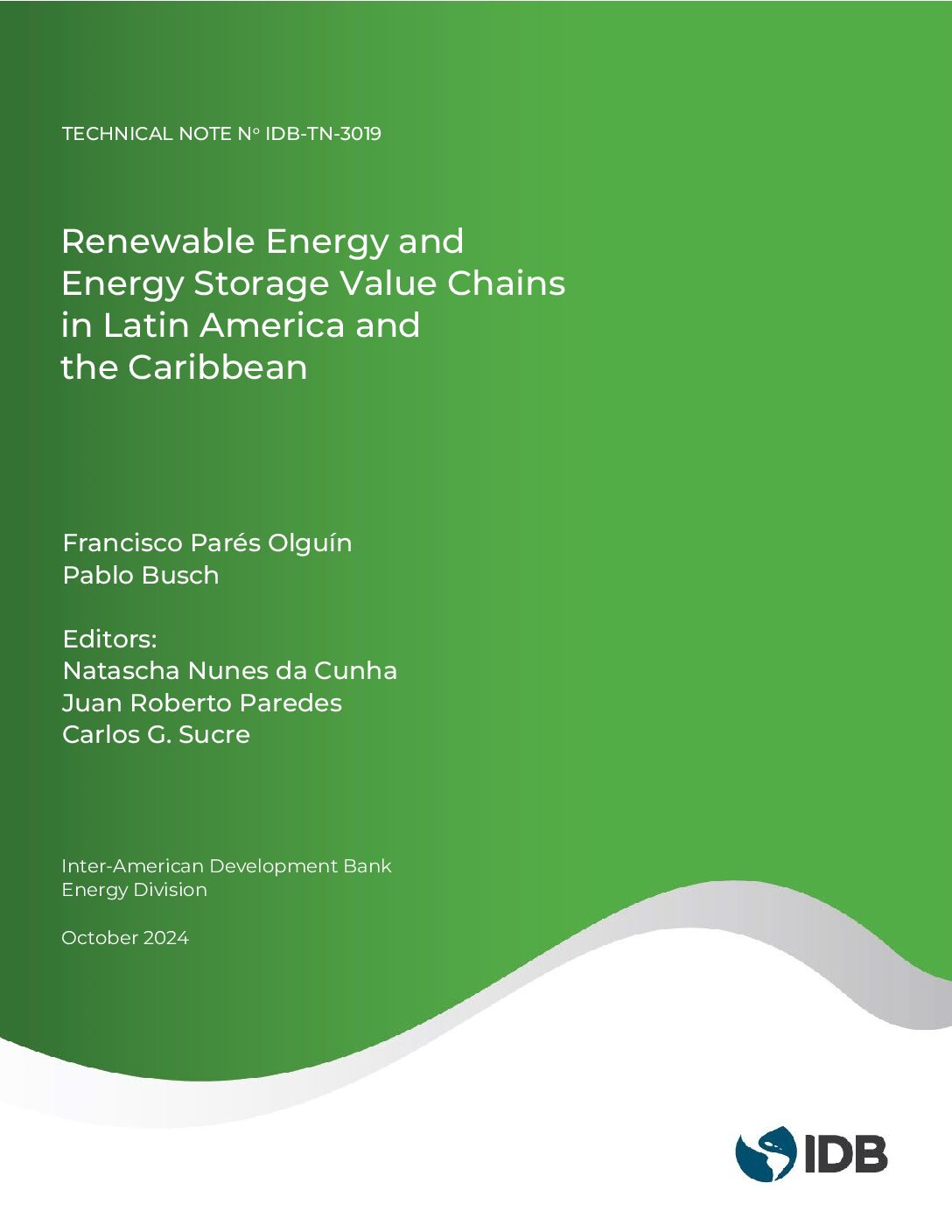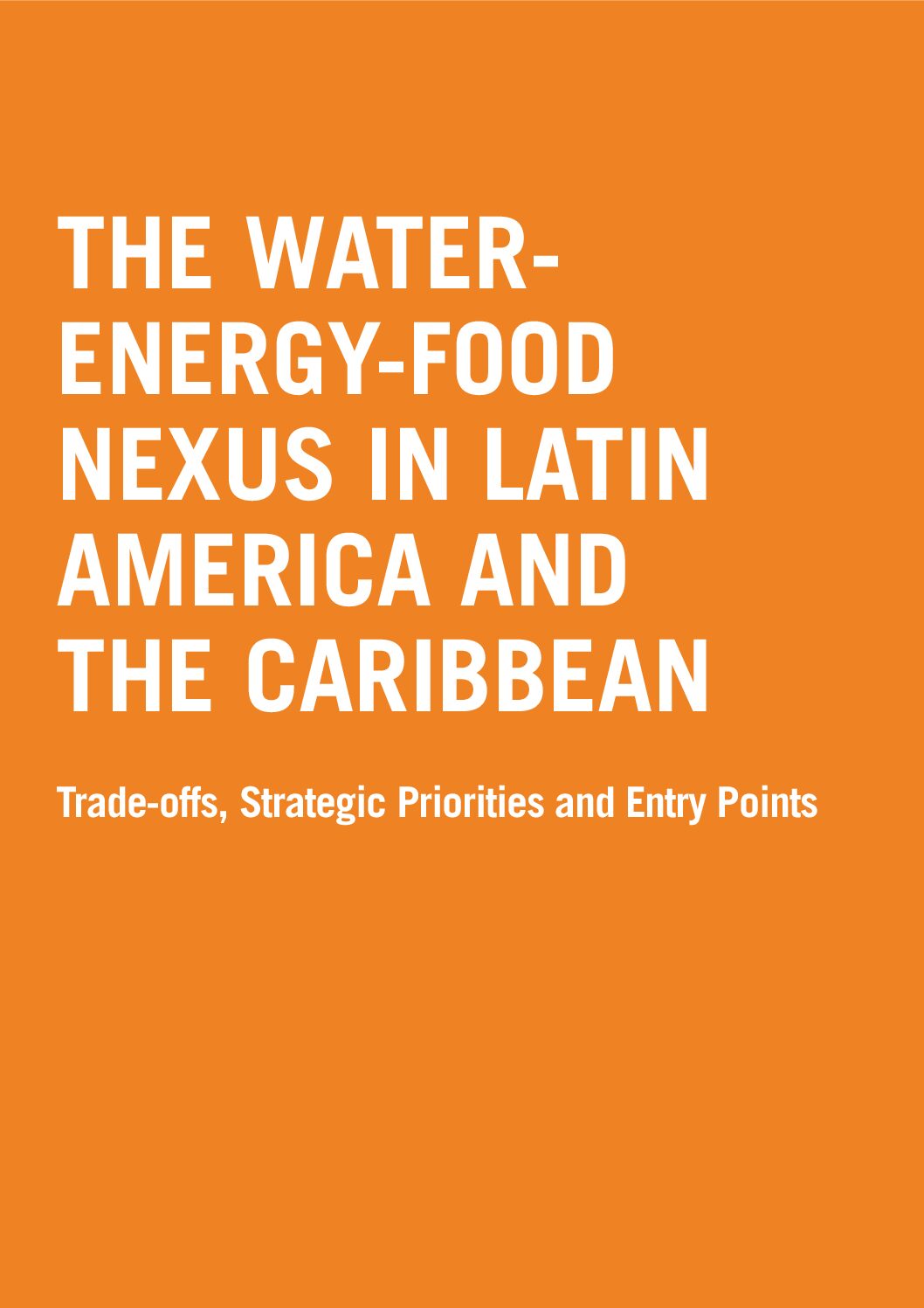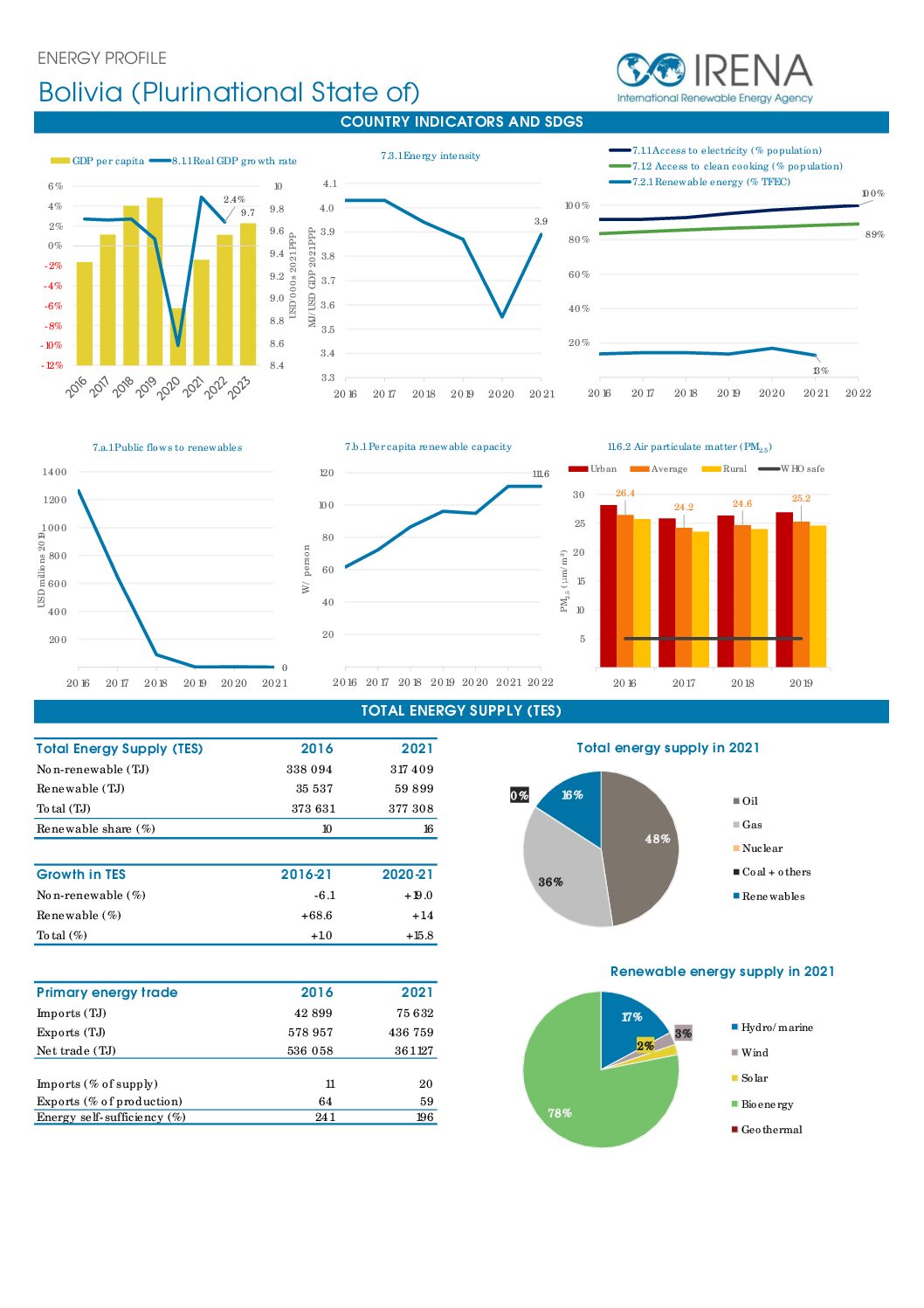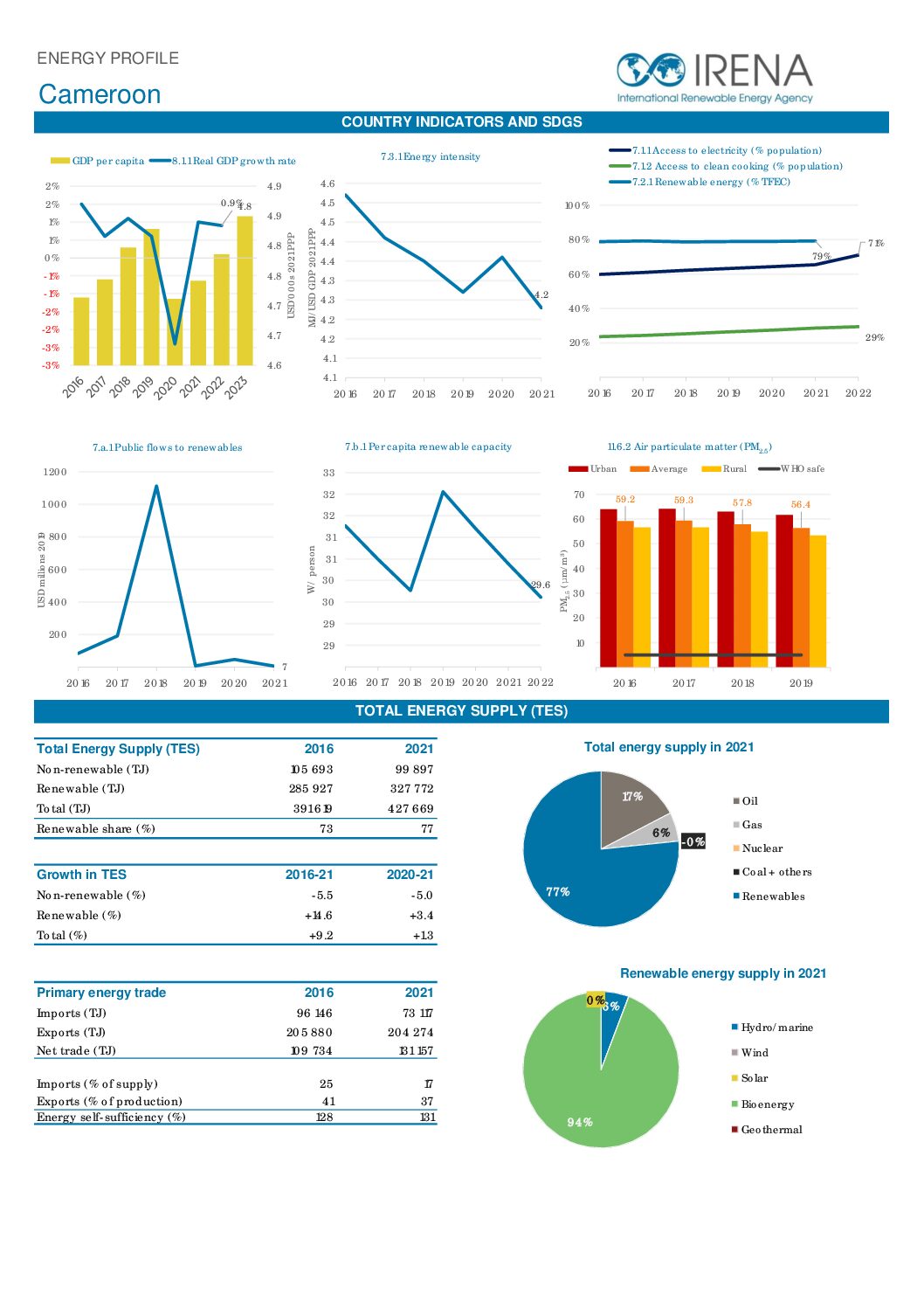This report identifies opportunities for Latin American and Caribbean countries in global renewable energy value chains. It focuses particularly on countries with significant mineral reserves, including Bolivia and Ecuador.
This report provides an overview of the water-energy-food nexus in Latin America and the Caribbean (LAC), identifying the main challenges and opportunities for achieving water, energy and food security in the region.
This report analyses linkages in the water-energy-food-ecosystem nexus – essentially resource management trade-offs and synergies — in transboundary river basin settings. It draws on 36 nexus case studies from transboundary river basins in Europe, Asia, Africa and the Americas, providing lessons for transboundary management and cooperation.
This report analyses gender biases in renewable energy companies in Latin America.
This energy profile provides recent data on the energy sector of Bolivia, including generation mix,total generation, renewable energy potential and more.
This web page provides an overview of the energy sector of Bolivia, including data on the energy mix, energy use and emissions; and a policy overview.
This web page provides an overview of the energy sector of Cameroon, including data on the energy mix, energy use and emissions; and a policy overview.
This energy profile provides recent data on the energy sector of Cameroon, including generation mix,total generation, renewable energy potential and more.
This study recommends opportunities, such as a suitable share of technologies, administrative reforms, and required adjustments in NDCs, that the government could exploit to advance the energy transition.
This platform lets users explore and compare real-time data on electricity demand, generation and spot prices, trade, and CO2 emissions from more than 50 sources.





